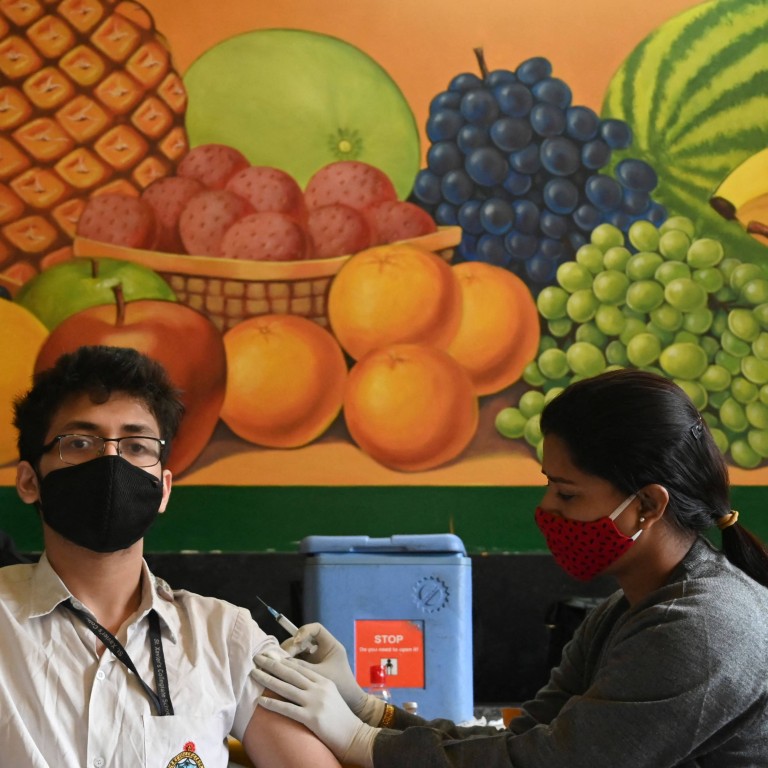
Coronavirus: Japan gears up for possible Omicron surge, Delhi chief minister tests positive and Philippines expands curbs in Manila
- Tokyo will consider extending border controls and use oral treatment drugs government to roll out more antiviral pills and at-home treatment to prevent shortage of hospital beds
- Elsewhere, India minister tests positive; Manila expands curbs; Australia cases hit new high.
Japan will ramp up efforts to deal with a possible surge in Omicron coronavirus cases and aim to deliver oral treatment using Pfizer Inc’s drugs nationwide next month, Prime Minister Fumio Kishida said on Tuesday.
Kishida also said the government will decide next week whether to extend border controls, which he described as having successfully prevented infection numbers from spiking.
“We’ll prepare to shift the focus of Japan’s Omicron response to domestic measures to guard against the worst-case scenario of a possible spike in community transmissions,” Kishida told a news conference.
Aside from antiviral pills developed by Merck & Co Inc already delivered nationwide, the government will aim to roll out “at the earliest date possible in February” Pfizer’s oral treatment drugs in Japan, he said.
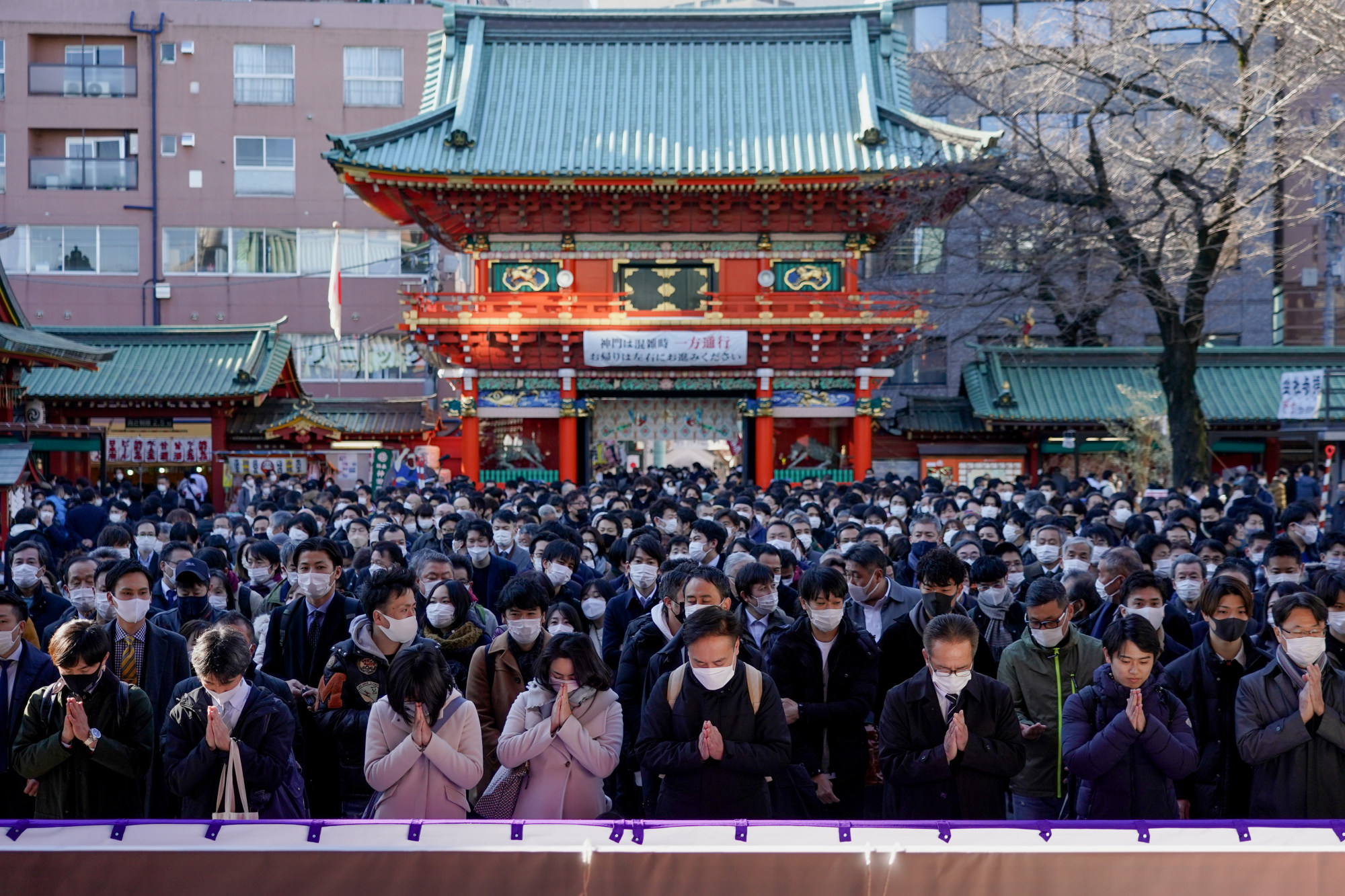
As more oral drugs become available, Japan will allow more patients to receive treatment at home to avoid a resurgence in infections from triggering a shortage of hospital beds, he said. Japan now has 993 Omicron cases including 295 cases considered as community transmissions.
Japan is betting heavily on oral treatments to keep serious infections and deaths at bay should a feared sixth wave of the pandemic emerge. The government agreed in November to pay Merck and its partner Ridgeback Biotherapeutics about US$1.2 billion for 1.6 million courses of their drug molnupiravir.
“If a spike in infections lead to a shortage of hospital beds, we must flexibly consider ramping up curbs on activity,” Kishida said.
Vaccine bubble plan for Hong Kong restaurants, schools delayed to February 24
Kishida also said he would forgo overseas visits before the start of Japan’s parliament session on January 17 to focus on laying out anti-pandemic measures. Domestic media have reported that Kishida was aiming to visit Australia and the United States to meet his counterparts before parliament convenes.
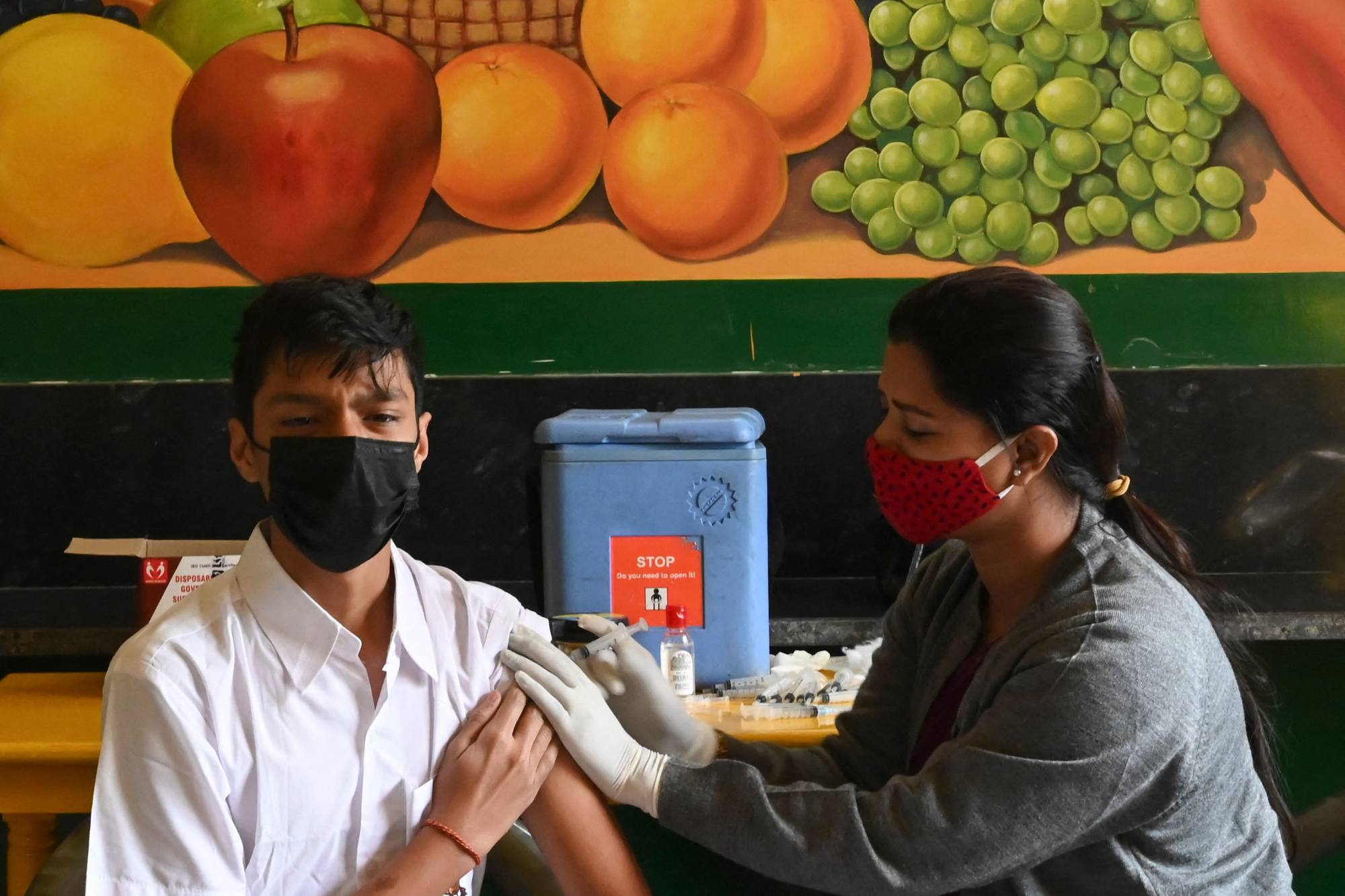
Delhi chief minister test positive as India’s cases surge
One of the newly infected people was Delhi Chief Minister Arvind Kejriwal, who spoke at an election rally on Monday without wearing a mask. Similar rallies have been held across states voting in the next few months in upcoming ballots.
Kejriwal said in a Twitter post he had isolated at home and urged those who came in touch with him in recent days to do similar and be tested for Covid-19.
The country’s death toll rose by 124 to reach a total of 482,017. Total infections stand at 34.96 million.
Philippines to expand Covid-19 curbs in Manila
Daily infections have spiked to a two-month high in January and the health department warned of higher caseloads in the coming days following the detection of local cases of the highly contagious Omicron variant.
The provinces of Bulacan, Cavite and Rizal surrounding Manila have been placed under the third highest alert “due to a sharp increase of Covid-19 cases”, presidential spokesman Karlo Nograles said in a statement on Tuesday.
Under the tighter restrictions, which will be in place until mid-January, unvaccinated residents have to stay at home unless buying essentials or exercising.
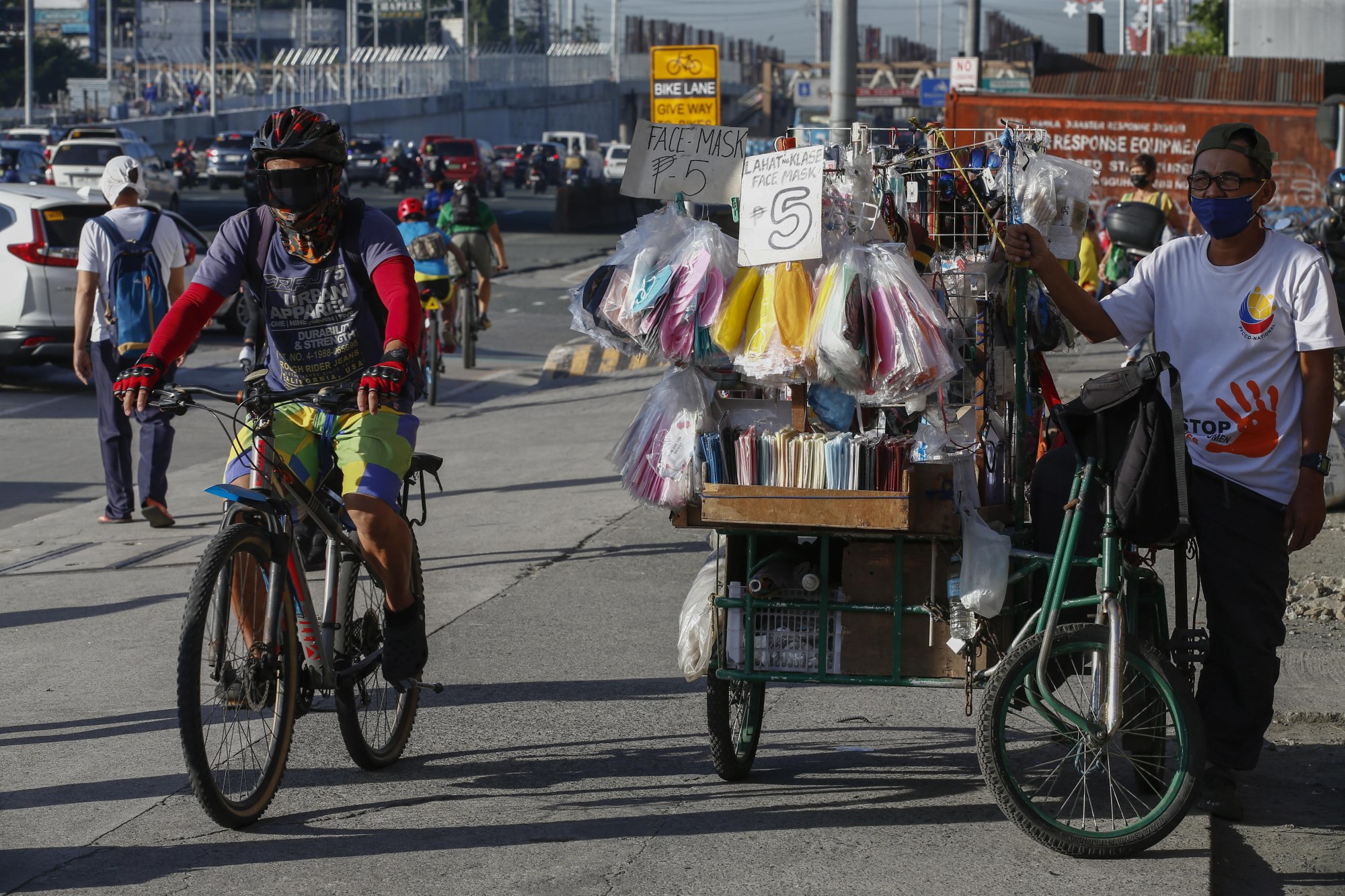
Restaurants, parks, churches and beauty salons will operate at lower capacity while in-person classes and contact sports are suspended.
The order comes a day after Manila went to Alert Level 3.
Around 70 per cent of residents in Metro Manila are double jabbed but less than half the national population is, according to government data.
“We did initial estimates. The assumptions would be … Omicron is eight times more transmissible than Delta, and that the peak will happen at the end of January,” health undersecretary Rosario Vergeire told CNN Philippines. “It will be more than the numbers we saw during the Delta peak,” she added.
What Asian countries are doing to fight the Omicron variant
The health department has deemed the entire country of 109 million at “high risk” following a spike in cases in recent days, Vergeire said, even as hospitalisations remain under control.
Before the tighter quarantine rules, the Philippines had been under its second-lowest alert level since December 3 as cases fell, which allowed restaurants and indoor venues to ramp up capacity and in-person classes to resume on a limited basis.
The Philippines has recorded over 2.8 million infections and more than 51,000 deaths.
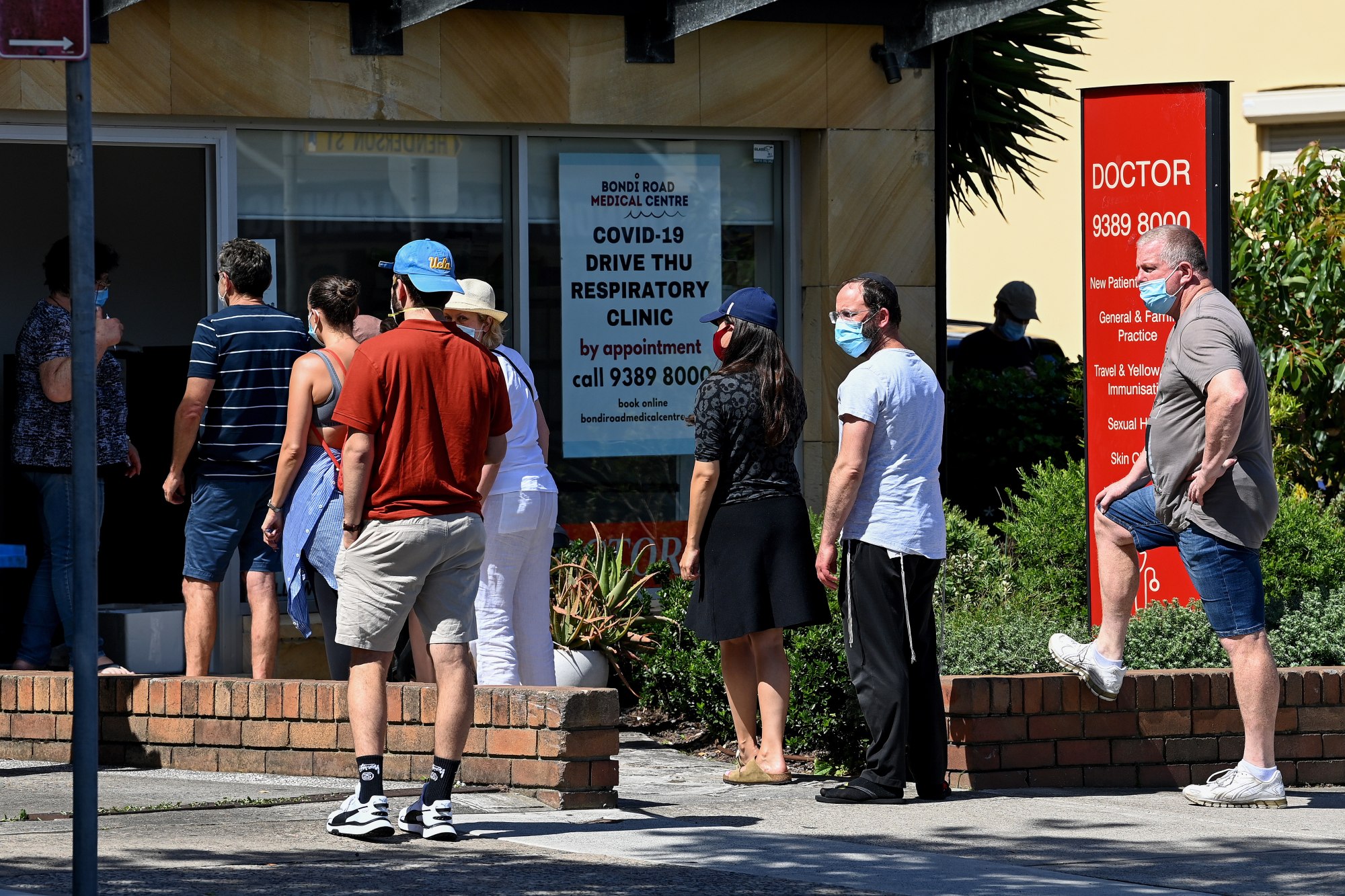
Australia Covid-19 cases reach a new high
NSW and Victoria, home to more than half of Australia’s 25 million people, saw another spike in infections, with 37,151 new cases reported between them, just shy of the national one-day high of 37,212 hit a day earlier.
Tasmania reported 702 new cases. Other states and territories are set to report their numbers later in the day.
People admitted in NSW hospitals rose to 1,344, a new pandemic peak, topping the 1,266 reached last September during the Delta wave. Numbers have more than doubled in a week, straining the health system.
Singapore probes New Year’s Eve street party; Indonesia to begin boosters
Authorities are also battling a shortage of rapid antigen tests, delays with PCR results and the abrupt closures of a number of testing sites as Prime Minister Scott Morrison ruled out the government covering the cost for people to test themselves for Covid-19.
“The problem at the moment is that the lack of [rapid antigen tests] is completely hampering personal responsibility and it is a frustration that is a glaring hole in the current management of Covid,” Chris Moy, vice-president of the Australian Medical Association, told ABC Radio on Tuesday. “You have this double-whammy of lots of patients and also staff being furloughed at the same time.”
New South Wales Chief Medical Officer Kerry Chant on Monday urged people not to seek hospital treatment unless absolutely necessary. “It is important that we all play our part in not placing unnecessary burden on the health system,” she said.
Australia’s daily Covid-19 cases stick above 37,000 as hospitalisations surge
The record spike in infections and hospitalisations have come as 2 million more Australians became eligible for their Covid-19 booster shots from Tuesday after authorities shortened the wait time between second and third shots to four months.
Just over 2.5 million Australians have so far received their booster shot, which health officials are betting may prevent more hospitalisations and deaths.
Australia on Tuesday crossed half a million coronavirus cases since the pandemic began, with about 94 per cent detected since last July when its east was rocked by a Delta outbreak. Still, the country’s near 538,000 cases and 2,270 deaths are lower than numbers seen in many comparable countries.
Reporting by Reuters, Associated Press, Agence France-Presse, Bloomberg
